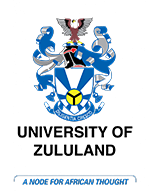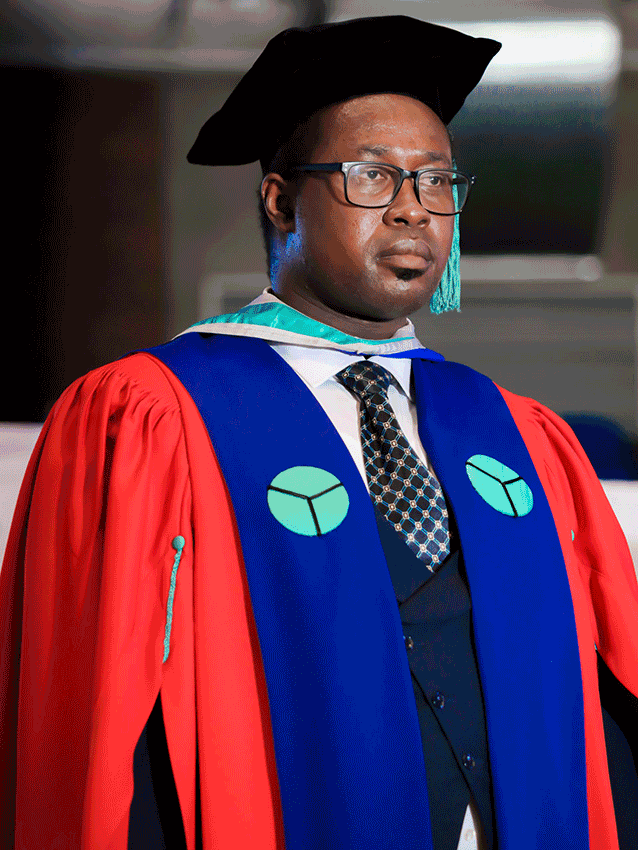Dr Ayotuyi Tosin Akinola (36), a University of Zululand (UNIZULU) PhD graduate, has made a valuable contribution to the computer science field by finding a simple solution to the common challenge of interference during the flow of data within a data control centre (DCN) in a software-defined network (SDN).
SDN refers to a group of linked devices, such as computers or Wi-Fi routers, which are controlled from a central system or software application to simplify tasks such as programming and intelligence control, while also enhancing the speed at which such tasks are performed.
In his doctoral study, Nigerian-born Dr Akinola sought to test the efficiency of a solution to the current stability issue that affects SDN technologies. He explains that, after reviewing literature on SDN, he discovered that there was a great need to enhance network stability in a scalable software-defined and data-oriented DCN.
“I proposed an algorithm that would help to eradicate flow interference that happens in the process of executing software-defined network. There are times in which you have small messages like chats, others where you have moderate messages like attachments in emails and times where we have very big data like streaming of live matches. If all three arrive at a destination at the same time, there is often a struggle of which one uses the network resource first,” Dr Akinola elaborates.
He adds, “I, aided by my supervisors, developed a system that would selectively adapt such that it would give preferences to the small messages to be sent quickly, even while the bigger messages are travelling to destinations, so that we can eradicate interferences, delays and so forth. With software-defined networking, you can process that; it’s only a matter of having a central control to implement that and make work faster.”
The proposed algorithm, known as Multi-Objective Optimization Crosspoint Queue (MOCQ) which is a derivative of Adaptive Rendering Technique (ART), is a non-complex algorithm that is easy to be deployed. When tested, it indicated improved performance demonstrated by faster stability, improved response time and network throughput, and a speedy rate of convergence. Dr Akinola also sought to balance the level of satisfaction derived by both service providers and end-users (who are the stakeholders). The feedback confirmed a “42.9% reduction in the rate of network response delays and over 150%-point improvement over the existing rate of switch failures when compared to the ordinary Crosspoint Queue approach”.
The scholar is ecstatic that he was finally conferred with a Doctor of Philosophy (Computer Science) on Friday, 13 May 2022. When he registered for his PhD in 2017, he couldn’t have predicted the tumultuous ride that awaited him. Selecting a suitable topic that was both novel and would add value to the enormous and everchanging world of computing proved more challenging than Dr Akinola had imagined. With Prof Matthew Adigun and Dr Pragasen Mudali as his supervisor and co-supervisor, respectively, the graduate was soon able to embark on a fulfilling journey that led to significant attainments. His study has culminated in the publication of at least two articles in accredited channels, three book chapters and five conference paper presentations.
Apart from his supervisors, Dr Akinola walked the doctoral path accompanied by the Almighty God who was his “source of strength” together with his family, church brethren and fellow PhD student who provided morale support.
The scholar’s graduation was bittersweet though as his mother and biggest cheer passed away in February 2022, a mere two months before her son’s defining moment.
– Naledi Hlefane

